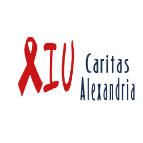03 – 4840138
aiu_caritasalex@yahoo.com
FAQ

PLHIV’s rights are an integral part of human rights without any derogation or discrimination. Here are some examples of some of these rights:
Right to life with dignity:
No one may be deprived of his right to life
The right to physical and psychological integrity:
It is not permissible to conduct medical experiments on a person living with the virus except with his free and documented consent or taking blood samples from a person without his satisfaction or his
knowledge
The right to non-discrimination
Citizens are equal before the law, and they are the same in rights and public duties, and there is no discrimination in that.
Respect the right of personal life (in AIDS field):–
- Ensuring the confidentiality of information of PLHIV.
- Arbitrary interference with private life is not permitted.
- Compulsory selective testing is not permitted.
- The carrier of the virus is not compellable to report himself.
Right to get information:
- Right imposed by the importance of prevention of diseases in general.
- Diversification resources for getting information and awareness: (The National Program, the media, civil society institutions, and the clergy).
The right to health care:
People living with HIV have the right to integrated healthcare, like any citizen, and refrain from giving them treatment in any way criminalized.
Social rights:
a. Rights related to personal status:
1.The right to marry:
The pre-marriage examination aims to prevent both parties, and it is not mandatory to complete the marriage or not.
2. The right to pregnancy and childbearing:
- PLHIV Can’t be restricted or deprive him of this right, and it
- Should be with the consent of both parties under medical supervision.
3. Ruling on divorce:
The personal law statue permits divorce for harm if the continuation of marriage is impossible for several reasons, including serious diseases transmitted by one of the spouses.
4. The right of parents to custody and visit the child
b. The right to housing:
It requires enabling people living with the virus to obtain housing, prohibiting discrimination against him because of its health condition, including the right to remain in its residence after discovering its coexistence with the virus.
c. The right to education:
- The right to education in its various stage.
- Prohibiting separating students or allocating special classes for students living with the virus.
Economic rights:
a) The right to work:
- HIV test is not permitted for applicants or staff.
- The worker or his colleague may not be compelled to reveal personal information about the infection.
- Non-permissibility: termination of employment, deprivation of promotion, or deprivation of job benefits or entitlements, despite the ability to perform work with the same efficiency.
b) The right to health care and insurance:
- Health care for PLHIV is a right, and it is criminalized to refrain from providing this care by health service providers.
- Ensure the human right in compensation in case of a virus transmission because of work (blood banks / public and private treatment institutions).
- Ensure the PLHIV rights in life insurance, and also restrictions are not imposed to run-through their rights.
Prisoners’ rights:
- The right to prevent the transmission of the virus and to obtain the necessary information about it, its transmission mode, and prevention methods.
- The right to integrated health care for PLHIV prisoners.
- Prohibition of medical experiments on the prisoners without their explicit consent from informed consent.
- Examine the possibility of releasing a PLHIV prisoner if his health condition worsens due to imprisonment.
(STIs) sexually transmitted Infection
Sexually transmitted Infections:
These are the infections transmitted mainly through sexual contact with an infected person, and that happens whether during vaginal, oral or anal sex, and also some sexually diseases can be transmitted through touching the affected areas such as herpes, genitalia, and may also be transmitted through the affected mother to her newborn, such as syphilis.
- Avoid random and unprotected sexual practices.
- Mutual loyalty between the sexual partners.
- Check the selection of a sexual partner from outside the most vulnerable.
- Condom use during all kinds of random sexual practices.
- Use the female condom, taking into consideration not to use both male and female condoms together.
- Talk with the sexual partner about the previous sexual practices or injection drug use.
- Know the signs and symptoms of the infection to consult a doctor if necessary.
- Analysis and tests are recommended to ensure that no STIs are infected, in case of infection.
- If a person has an infection, the sexual partner must be treated and analyzed as well.
- If a person has an infection, sexual intercourse should not take place until complete recovery has occurred.
- Sexual infection transmits through unprotected sexual relations such as (vaginal, oral, or anal sex).
- Some transmitted diseases sexually such as HIV and Hepatitis B and C can also transmit as a result of contaminated blood (through sharing syringes or transfusion of contaminated blood or any of its derivatives), and also transfer from the infected mother to her newborn.
- Most STIs only live in warm and humid places, therefore affect the mouth, rectum, and genitals.
Yes, in case of having unprotected sex with an infected person.
It is hard to discover, some symptoms may appear on some patients, but many patients don’t show signs at all, someone can be infected and have no symptoms for one month or up to several years, but he can transmit the infection to others.
When any kind of rash or pimples appear around the genitals or sexual discharges, it is better to consult a doctor, and symptoms can be different from person to person, so the analysis is the most accurate way to confirm the existence of the infection.
- Consult a doctor because these infections do not cure without treatment.
- A person may feel embarrassed to visit the doctor, but no other way to recover from the transmitted sexual infections except when he receives treatment.
- Most sexually transmitted diseases – other than viral ones – respond to treatment and are curable, but treatment is required continuously.
- Encourage the sexual partner to consult a doctor and to treatment as well, for his condition not to get worse, or transfer the infection to others.
- Decide not to have sex. Not having sex (also known as being abstinent)
- Be faithful
- Avoid unprotected sexual relation
- Talk to the sexual partner about previous sexual practices or injecting drug use.
- Correct male/female condom use
- Get tested and treated for other STIs besides HIV regularly
Although we are all vulnerable to contracting HIV / AIDS, some are more susceptible to infection due to their impulsive behavior, and they called the Key persons, namely:
- Sex workers.
- Male homosexuality.
- Injecting drug users.
- Mother to child transmission.
- Sexual partners of sex workers and injecting drug users.
- Born to a mother living with HIV
Yes, Women and girls are considered more vulnerable to HIV infection.
Social reasons:
- Lack of awareness and information about HIV and other viruses.
- Weakness of the position of women and her inability to negotiate in order to obtain her rights (such as negotiating the use of condoms).
- Racism and violence against women: affect the negotiation process.
- Lack of access to social and health services.
Biological causes:
- The anatomical situation of the female reproductive organs, where the area exposed to infection with the virus increases.
- The high proportion of the virus in semen of a man infected with HIV compared to cervical and vaginal discharges.
- Stigma and discriminations.
- Marginalization from society.
- Most at risk to HIV infection.
- Lack of access to services and information.
- Lack of access to social, legal, and health support.
- Preventing the spread of the virus in the community.
The only way to know that you are infected is by doing analysis, and no other way to discover.
A person does the HIV test after being exposed to the causes of infection for a month, and the examination is through the voluntary counseling and drop -in- centers of the National AIDS Control Program or through the associations that provide that service and the voluntary counseling and examination service is characterized as confidential, voluntary and anonymous.
The virus is in all body fluids, but the fluids that can transmit infection are: –
- The men’s semen.
- Female vaginal fluids.
- Blood contaminated with the virus.
Breast milk infected with the virus
The virus outside the human body is very week, dies within 60 seconds.
The diseases that are usually not able to cause an infection in the case of a healthy immune system and take advantage of the weak immune system to cause infection, as in the case of people living with HIV, and among the most common opportunistic diseases among AIDS patients is tuberculosis (pulmonary tuberculosis) and dermatitis and stomatitis.
- The possibility of transmission increases in the case of a genital ulcer, as the virus can transmit through lacerations and fissures that occur in the inflamed and ulcerated mucous membranes.
- Infections produce copious secretions and thus an intense virus presence.

 What rights should a person living with HIV get?
What rights should a person living with HIV get? 